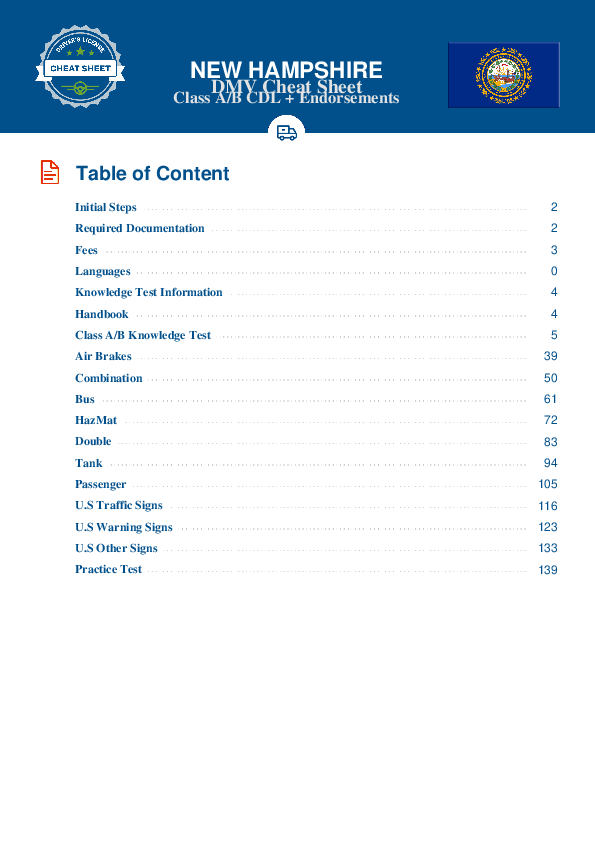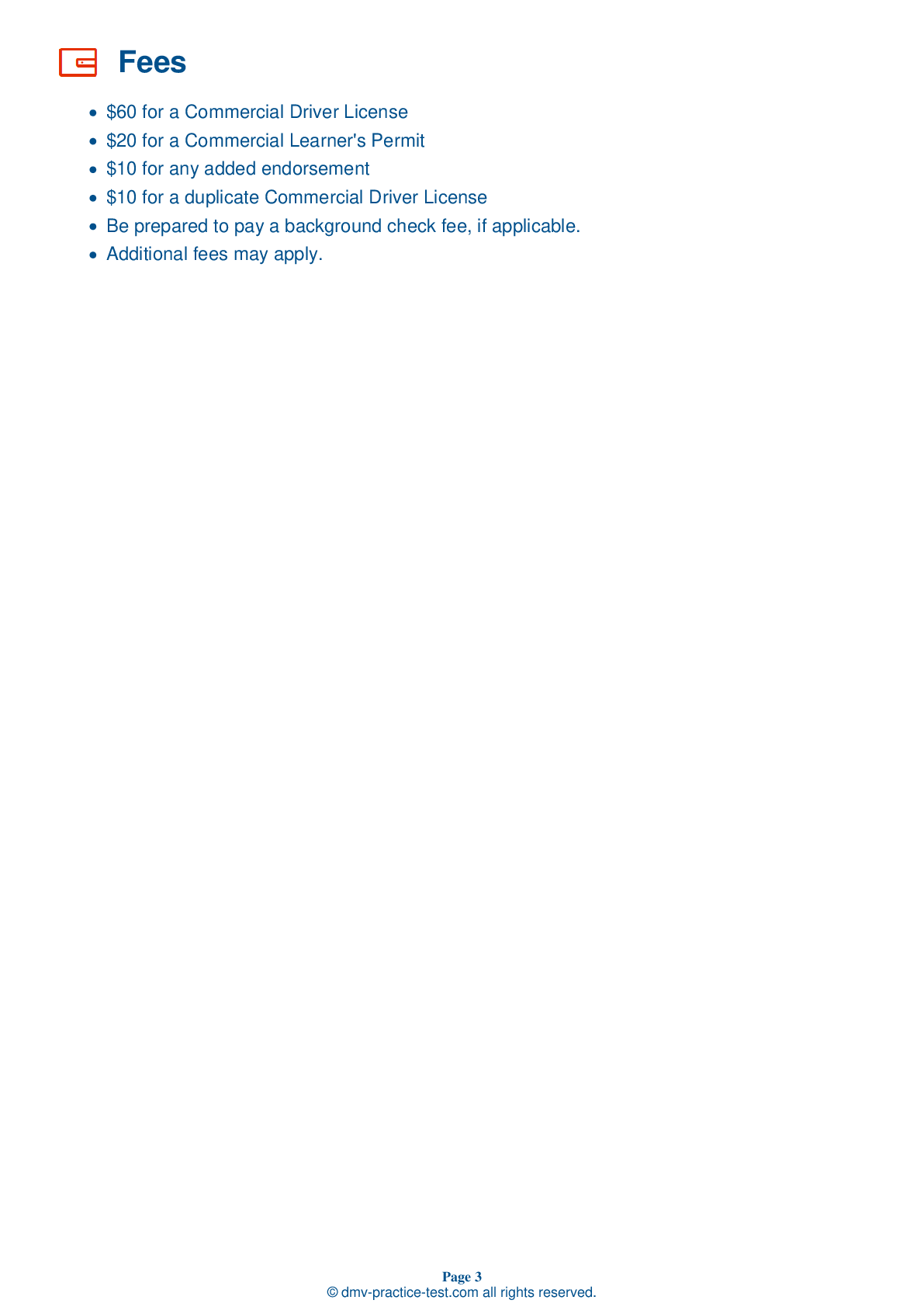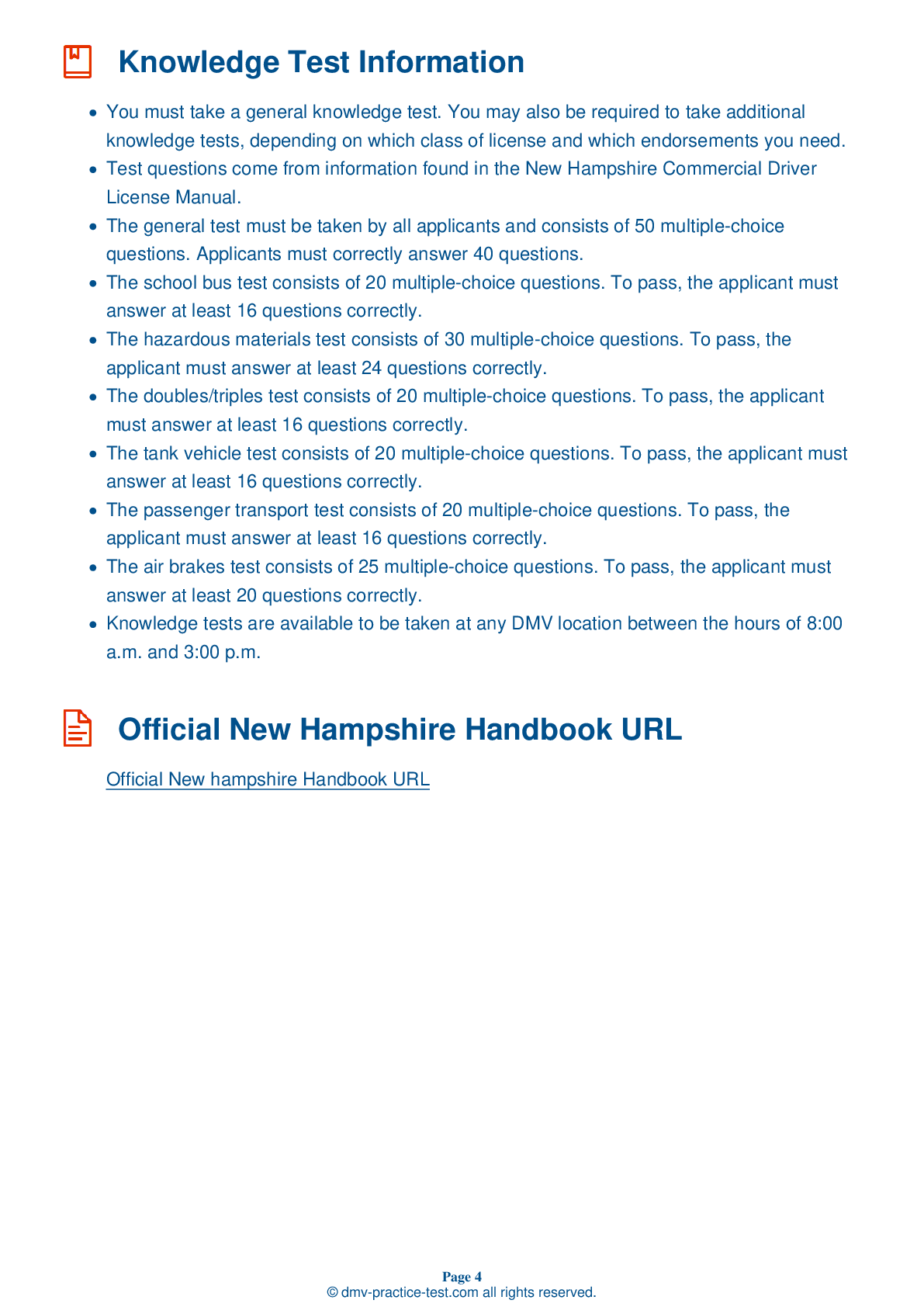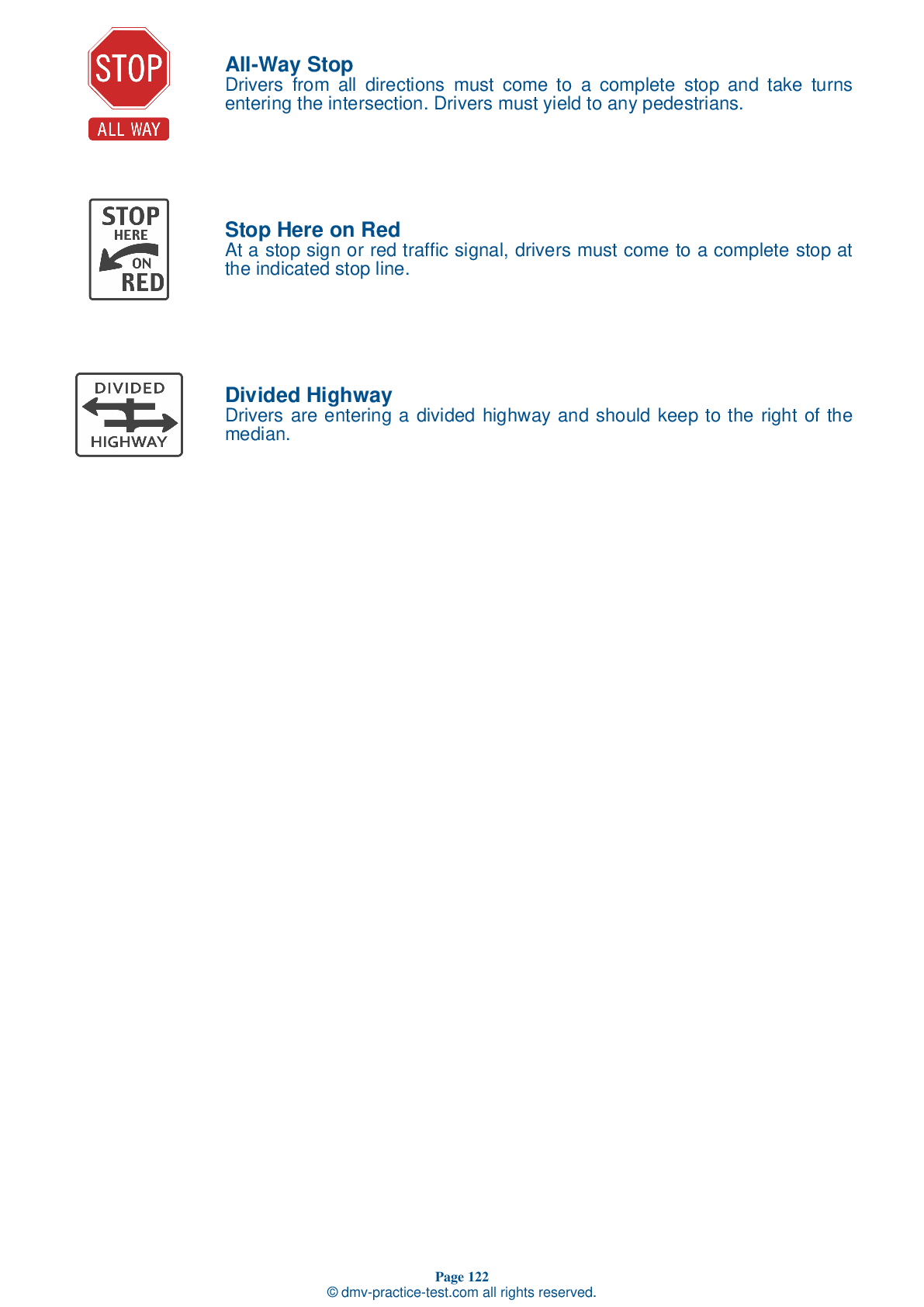Double #1
Double Triple Test | New Hampshire 2026 #1
Train for FREE with our New Hampshire CDL double triple practice test online. The official exam test consists of several obligatory parts, with all of them checking your knowledge of different blocks of road rules. If you need to obtain a NH CDL double triple license in 2026, practice as much as possible. Free sample tests published on our website will help you check and improve your knowledge and boost your grades. Please bear in mind that DMV requirements may vary from state to state.
20
16
20
1 . When trying to avoid a hazard:
You should drive on the shoulder.
Stopping is not always the most effective response to a hazard. You can usually turn out of the path of a hazard more quickly than you can come to a complete stop. However, swerving is not without its hazards, as it may result in a rollover in a vehicle that is either top-heavy or pulling multiple trailers.
2 . If you are turning left where there are two available turning lanes:
You should use both lanes.
If making a left turn where there is more than one available turn lane, you should always choose to take the rightmost lane. Large vehicles often have to swing right to make left turns, so it is safer for you to have other left-turning traffic to your left. This will allow you to have the best possible view of other turning vehicles and will lower the risk of your vehicle colliding with them.
3 . After a vehicle is started, the engine oil pressure should come up to normal:
After five minutes.
After a vehicle's engine is started, the engine's oil pressure should rise to its normal level within seconds. Do not drive a vehicle with oil pressure that is too low.
4 . If you are experiencing an engine fire, you should:
Turn on the heater.
In the event of an engine fire, you should turn off the engine as soon as possible. Do not open the hood unless absolutely necessary. Using a fire extinguisher, shoot foam through the louvers or radiator, or from the vehicle’s underside. If you are unsure of how to treat a fire, wait for firefighters to arrive.
5 . When backing in an unfamiliar area, using driver-side backing is:
Illegal when transporting hazardous materials.
If you must back up, it is safest to back toward the driver's side of the vehicle. This way, as the driver, you will have the best possible view of your path of travel.
6 . A pre-trip inspection should include:
Removing a tire.
A pre-trip inspection should include a check of components in the engine compartment, including a check of the engine oil level.
7 . A skid caused by acceleration can likely be solved by:
Swerving to the left.
Skids caused by acceleration frequently occur on slippery road surfaces. These skids can generally be resolved by the driver removing their foot from the accelerator.
2026 New Hampshire | Frequently Asked Questions
To acquire a CDL Hazmat endorsement in New Hampshire, you must have a valid commercial driver's license (CDL). Then, pass the Hazardous Materials Knowledge Test at your local DMV. You'll also need to submit a fingerprint-based background check and complete the TSA security threat assessment. Once these steps are completed, you can receive your Hazmat endorsement.
To obtain a CDL Hazmat license, you first need to have a valid Commercial Driver's License (CDL). You must be at least 21 years old and a U.S. citizen or have legal status. You're required to pass the Hazardous Materials Endorsement Knowledge Test, provide proof of identity, and undergo a TSA background check and fingerprinting.
When applying for a CDL Hazmat endorsement, you'll need to present your current valid Commercial Driver's License (CDL). You'll also need proof of U.S. citizenship or legal status, such as a birth certificate or green card. A completed application form, along with payment for the fees, is also required. Lastly, you'll need to submit your TSA background check and fingerprinting results.
Yes, there is a dedicated written test for the CDL Hazmat endorsement. This test is known as the Hazardous Materials Endorsement Knowledge Test. It covers the special rules and safety procedures for hauling hazardous materials. You must pass this test to obtain your Hazmat endorsement. Preparation may involve studying a state-specific CDL manual or taking practice tests.
The written test for the CDL Hazmat endorsement covers a range of topics related to hazardous materials. These include identifying different types of hazardous materials, understanding shipping papers, using placards and labels, loading and unloading hazardous materials, responding to emergencies and spills, and complying with federal and state regulations.
Yes, acquiring a CDL Hazmat endorsement in New Hampshire does involve extra charges. These include a fee for the written test, the TSA background check, and the endorsement itself. The exact amounts can vary, but you can expect to pay around $100 for the TSA check and $10 for the endorsement.
Yes, background checks are mandatory for the CDL Hazmat endorsement. The Transportation Security Administration (TSA) requires a security threat assessment, which includes fingerprinting and a criminal history check. Applicants must be U.S. citizens or have legal status. They cannot have convictions for certain crimes or pose a threat to national security, transportation security, or infrastructure.
Yes, obtaining a CDL Hazmat endorsement requires specialized training. The training covers topics like handling hazardous materials, safety procedures, and federal regulations. After training, you must pass a written test to get the endorsement. The training can often be completed through the same institution where you get your Commercial Driver’s License.
No, you cannot transport hazardous materials without a valid CDL Hazmat endorsement in New Hampshire or any other state. This endorsement is required by federal law and ensures that drivers are properly trained and capable of safely transporting hazardous materials. Violating this requirement can result in substantial fines and penalties.
Yes, you can add the CDL Hazmat endorsement to your current CDL license. However, it's not a simple addition. You'll need to pass a written test, provide proof of U.S. citizenship or legal status, and successfully complete a TSA background check. Once these steps are completed, the endorsement can be added to your existing CDL license.



